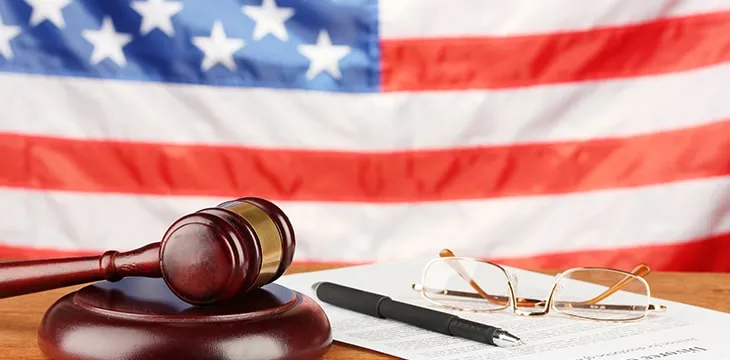|
Getting your Trinity Audio player ready...
|
To satisfy the law’s requirements, a court in the United States has ordered the Commodity Futures Trading Commission (CFTC) to serve the two founders of Ooki DAO with a notice of a lawsuit.
The CFTC had taken the decentralized autonomous organization (DAO) to court in September, notifying the entity of the lawsuit via a help chat box and a notice on the DAO’s online forum. Industry participants slammed the commodities regulator over the manner of service as they argued that it failed to identify the clear defendants in the matter.
New facts emerged that Tom Bean and Kyle Kistner, founders of bZeroX, were Ooki DAO token holders. bZeroX was converted to a DAO after a legal skirmish with the CFTC, which resulted in Bean and Kistner settling $250,000 with the commission over charges of “illegally offering leveraged and margined retail commodity transactions in digital assets.”
Based on new information coming to light, District Judge William Orrick directed the commission to amend how they served the lawsuit on the DAO. Judge Orrick conceded that Ooki DAO might have been properly served, but for the purpose of “the best practicable notice,” the CFTC will have to serve on at least one identifiable token holder.
“At the hearing, the CFTC asserted it knew that some of Ooki DAO’s Token Holders reside and conduct business in the United States because the two founders of Ooki DAO’s predecessor entity, bZeroX LLC, are Token Holders who reside in the United States,” read Judge Orrick’s ruling.
“The CFTC is now ORDERED to serve Bean and Kistner in their roles as Ooki DAO Token Holders,” he concluded.
CFTC vs Ooki DAO leaves industry participants holding their breath
CFTC’s legal battle with Ooki DAO is widely considered to be one that could shape the future of DAOs as it pokes holes into the legality of their operations. The commission’s lawyers allege that Ooki DAO’s founders are hiding under the mask of decentralization to avoid complying with the law.
The CFTC argues that the DAO, which remains unregistered with the body, is carrying out activities that can only be performed by a Designated Contract Markets (DCM) exchange or an authorized Futures Commission Merchant (FCM) under the law.
Opinion has remained split since the start of the case with Paradigm, an industry venture capital firm criticizing the CFTC stance as being myopic.
“Holding a technological tool liable for the actions of some of its users makes no more sense than holding ‘the internet’ liable for misconduct it facilitates,” said Paradigm in a statement.
Watch: The BSV Global Blockchain Convention panel, Law & Order: Regulatory Compliance for Blockchain & Digital Assets

 07-12-2025
07-12-2025 





